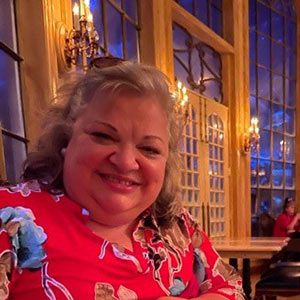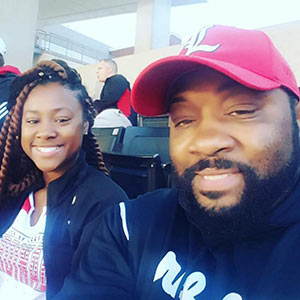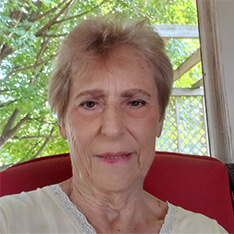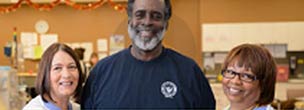How Belinda Wooten Found Freedom Through Home Hemodialysis

Over the last decade, Belinda Wooten—a registered nurse (RN) from Paducah, Kentucky—has been prescribed 3 types of dialysis treatment for kidney failure. These experiences have helped her discover a path to personal freedom and find ways to continue doing the things she loves with the people she most enjoys.
“Being a nurse, when I see the health problems people have, the thing that has such an impact is the loss of control,” she says. “When you can have that control, it’s a game-changer—and I relate control to independence.”
An Early Education in Caregiving
“My dad and I took care of her, but he had to work also,” she remembers. “I learned to cook for her, bathe her, and help her with correct body positioning. From that experience, I decided that I wanted to be a nurse.”
An RN since 1982, Belinda has been employed with the Kentucky Office for Children with Special Health Care Needs for the last 14 years. In her current role, she is a full-time care coordinator for the agency’s neurology and autism programs. And although she didn’t know it when she began her career, her chosen profession would eventually help her navigate her own journey with kidney disease.
Discovering Dialysis Treatment Options
In 2008, Belinda was diagnosed with IGA nephropathy, an immune disorder that causes inflammation in the kidneys and often leads to kidney failure. She knew dialysis was in her future, she just didn’t know when. In 2012, she started peritoneal dialysis, and after several months she and her doctors were shocked to see her kidney health improve to the point where she was able to go off dialysis.
But late in 2014, Belinda got a kidney stone (a common occurrence for her) while vacationing in Florida. The episode resulted in an infection, sepsis, and kidney failure, all in quick succession. Her glomerular filtration rate (GFR) dropped to 7, and within days she was back home in Kentucky where she began in-center hemodialysis.
“When I started dialysis, they took off 40 pounds of fluids,” she remembers. “As a nurse, I knew I was very sick.”
In-center hemodialysis got Belinda back on track and kept her healthy enough to work full-time, but she says she was often tired and didn’t feel like herself. On the positive side, she formed strong relationships at her dialysis center, Fresenius Kidney Care Paducah, and her care team was (and still is) attentive and encouraging, always looking out for her best interest.
“Almost from the time I started, they kept telling me I was a great candidate for home hemodialysis (HHD), but at the time you needed a care partner, and my husband is also a nurse and needed to work, so that wasn’t possible,” she recalls.
That all changed in 2019 when Belinda’s nurse informed her that she could be prescribed solo HHD, meaning she could administer treatments for herself, by herself.
A New Level of “Belindapendence”
“Training was broken down into sections, and each time I came in, I would go as far as I was comfortable and my trainer would help me do the rest,” explains Belinda. “Having a nursing background helped, but it wasn’t like on day one they expect you to know all this equipment. It’s based on your comfort level.”
Belinda says HHD gives her more energy, flexibility, privacy, and additional time with family. Her husband is often right by her side when she dialyzes, and she knows that her care team is always there to assist when she has questions or needs assistance.
“HHD gives me more of a sense of freedom,” she says. “I joked with my nurse that if she told me I had to go back to another form of treatment, I’d probably fight her.”
More Versatility, More Choices, More Fun
The Wootens are self-described “Disney freaks,” and have made frequent trips to Florida theme parks over the last several decades. “We love the rides, the shows, and the ambiance of the different resorts,” says Belinda. “As a family, we are truly together, having fun, and bonding. My favorite park is Epcot. I love to walk through the different countries and try different foods or drinks.”
On HHD, Belinda brings her dialysis machine and has supplies sent to the hotel room, where she can do therapy whenever it suits her and her family.
“Now, with HHD, look at the difference!” she says excitedly. “I can dialyze in my room then clean up and go meet them when I’m done. If we want to get an early start, we can stay until the parks close and then I just dialyze while watching TV that night. It’s made a major difference with my family time. Dialysis is something you never get a vacation from, but when you do it yourself, it gives you more choices.”
Suggested topics

Staying Strong: Home Dialysis Fits a Professional’s Busy Schedule

Freedom to Do What She Loves on Peritoneal Dialysis
Sandra Metzger isn’t the type to let kidney disease stop her from doing anything. “If I do get down, I get right back up,” she says....

